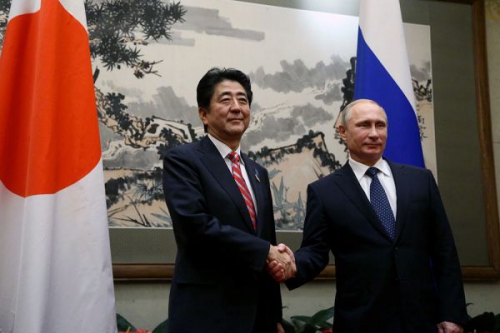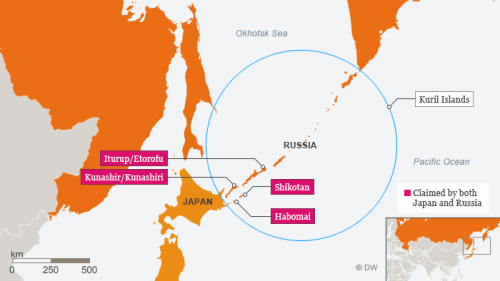Ich schreibe diesen Artikel schnell und ganz sicher nicht für Menschen, denen Religion resp. „der Islam“ eh nur „Teufelszeug“ ist. Das nur vorweg. Ansonsten geht es darum, dass die aktuelle Diskussion nur Symbolpolitik ist aber als Zeichen der „Integration“ – zumindest für mich – endgültig verloren hat.
Zum Thema: Stellen Sie sich vor, eine europäische Touristin würde in einem muslimischen Land, in dem ein Verhüllungsgebot besteht, am Strand von der Polizei gezwungen werden, einen Burkini anzuziehen. Der Aufschrei wäre hier in manchen Medien und Netzwerken groß. Andere würden schweigen.
Mehrere französische Städte haben nun ein „Burkini“-Verbot an ihren Stränden erlassen. Der Burkini ist ein Ganzkörperbadeanzug, der muslimischen Frauen auch das Baden in der Öffentlichkeit ermöglichen soll. An diesen Verboten gibt es – ähnlich wie an dem ebenfalls in Frankreich geltenden Ganzkörperverschleierungsverbot – nun massiv Kritik. Bei dem Verbot handle es sich um ein „Integrationshindernis“, da es die Frauen dadurch am Baden abhalte, so von der Teilnahme am Alltagsleben ausgrenze und somit an der Integration hindere. Außerdem treffe es dadurch nur die Falschen, da oft die Frauen doch zum Tragen dieser Kleidung gezwungen würden. Punkte die sicher nicht von der Hand zu weisen sind, sicher. Aber diese Punkte gehen an der längerfristigen Absicht dieser Verbote vorbei.
In Nizza ist jetzt ein Fall eingetreten, dass die Polizei das Verbot auch in der Öffentlichkeit durchgesetzt hat. Eine Frau in einem Burkini wurde am Strand angeblich gezwungen den Burkini auszuziehen. Vor den Augen der anderen Badegäste und der Beamten. [Anm.: Mittlerweile ist klar, das es nur eine Tunika war, die die Frau ausgezogen hat und eine Strafgebühr (35 €) zahlen musste, nach dem sie sei wieder anzog. Zahlreiche Medien schlachteten das Thema oberflächlich aus, bevor sie die Meldung nachprüften. 8] Auf SpiegelOnline ist dazu von kritischen Stimmen aus Großbritannien zu lesen, die einen für mich spannenden Punkt aufmachen: „Der Burkini gibt mir die Freiheit, schwimmen und an den Strand zu gehen, und ich habe nicht das Gefühl, dass ich dabei meiner Religion schade“ und „Die Leute meckern immer, dass Muslime sich stärker integrieren sollen, und wenn wir mit euch zum Schwimmen gehen, ist das auch nicht richtig“. So zumindest ärgert sich Maryam Quiles bei der BBC. [1]
Die „wahre“ Bedeutung von Integration im Bezug auf die „Verhüllung“
Und hier sind wir beim „des Pudels Kern“: In den letzten Jahrzehnten war „Integration“ das Zauberwort, egal ob der Wortverwender konservativ, liberal oder sozialistisch war. „Integration“ sollte die Teilhabe und den Einstieg in das gesellschaftliche Leben für Einwanderer oder Fremde erleichtern oder überhaupt ermöglichen. Gerade in Deutschland hat sich aber in der breiten Öffentlichkeit mit Integration etwas verbunden, was gar nicht so damit gemeint ist: Nämlich, dass sich die Fremden anpassen, einfügen und dazugehören sollen. Und vor allem: wollen.
Doch unter der offiziellen, ultraliberalen bis sozialistischen Prämisse dieses Begriffes, haben wir jetzt als Ergebnis Menschen, die sich vll. so kleiden wie Deutsche, die einen deutschen Pass haben, die erfolgreich Arbeiten, gut Deutsch sprechen, unsere Gesetze achten und sozial engagiert sind aber mit Herz und Verstand noch in der Fremde hängen. Die „Integration“ hat der Fremdheit lediglich ein „Weiterleben“ der anderen Lebensart ermöglicht aber kein wirkliches „Zusammenleben“, keine Einheit gefördert.
Deutlich wird das eben z.B. daran, dass sich oben genannte Muslima meint, dass sie „ihrer Religion schade“, wenn sie keinen Burkini trage. Gleiches Argument gilt auch bei Burkas und Niquabs. Nun ist es aber so, dass die Burka sich aus der Schutzkleidung von Nomaden entwickelt und über die höhere Gesellschaft im Osmanischen Reich und später den Golfstaaten in der muslimischen Welt verbreitet hat. Dabei sprechen sich selbst muslimische Gelehrte gegen die Vollverschleierung aus und diese ist darüber hinaus auch in muslimischen Ländern nicht unumstritten. [2, 3]

Bei der Burka / Niquap / dem Burkini geht es also primär nicht um ein allgemeines religiöses Symbol, sondern um ein politisch-religiöses Bekenntnis. Ein Bekenntnis zu einer klar fremden (!) Identität und Weltanschauung. Er ist wie ein „Raumanzug“ der die fremde Identität vor der neuen anderen „Atmosphäre“ schützen soll. Der Punkt ist: Diese Frau wird auch hier leben können, wenn sie diesen „Schutzanzug“ ablegt. Diese „Schutzkleidung“ ermöglicht ihr also einen „Bewegungspielraum“ aber kein Ankommen in diesem Kulturkreis, in ihrer neuen Heimat und damit bei ihrem neuen Volk. Und damit ist die Grenze der Möglichkeit der „Integration“ erreicht. Es Abzulegen wäre ein Bekenntnis zu ihrer neuen Umwelt und greift „ihre Religion“ eben nicht an. Amüsant ist, dass die (australische!) Erstellerin des Burkinis ihre Kreation gänzlich unpolitisch sieht. [7]
Kopftuch und „Loyalitätskonflikte“
Gerne wird mit dieser Diskussion auch das Kopftuch verbunden. Hier habe ich aber höhere Vorbehalte, da wir auch eine abendländische Tradition des Kopftuches haben und man von seinem Gegenüber zumindest das Gesicht sieht. Was mich allerdings immer noch beunruhigt, ist ein ähnlicher Punkt wie oben: Das Kopftuch als Bekenntnis mehr zur eigenen Fremdheit, als zur Religion. Es geht für mich also mehr darum, was in dem mit einem Tuch bedeckten Kopf steckt, als das Tuch allein. Aktuell gibt es umstrittene Gerichtsbeschlüsse die das Kopftuch im Staatsdienst noch einschränken, während Vollverschleierungen in öffentlichen Einrichtungen wie Schulen klar verboten werden. [6] Gleichzeitig fordert aber unsere Kanzlerin: „Von den Türkischstämmigen, die schon lange in Deutschland leben, erwarten wir, dass sie ein hohes Maß an Loyalität zu unserem Land entwickeln“. Und wird von ihrer eigenen Integrationsministerin kritisiert: „Wir sollten daher diesen Menschen nicht pauschal Loyalitätskonflikte unterstellen“. Auch hier spüren wir wieder die Grenzen der „Integration“: Seit Generationen leben hier Menschen die aus der Türkei stammen und trotzdem nehmen sie sich immer noch mehr als Türken, denn als Deutsche wahr. Massendemonstrationen wie z.B. letztens zu Ehren Erdogan in Köln sind da ein großer Punkt der den Zweifel nährt. [4] Gerade wenn anwesende Personen Sätze sagen wie „Ich bin in Deutschland geboren und aufgewachsen, bin aber Türkin und werde auch als Türkin sterben“. [So in einem Einspieler von ARD oder ZDF geschehen.] Diese Frau trug übrigens kein Kopftuch. „Pauschale“ Vorwürfe sind das also nicht. Oder wie meinte der österreichische Außenminister Kurz: „Wer sich in der türkischen Innenpolitik engagieren will, dem steht es frei, unser Land zu verlassen“. [5] Zu den Loyalitätskonflikten, von denen nicht nur Türkischstämmige betroffen sind, werde ich an anderer Stelle mehr schreiben (Stichwort: „Deutschland als offenes Einwanderungsland“).
Kurzgefasst und geschlussfolgert
Im preußisch-deutschen Reich, hat man den Katholiken damals auch Unverlässlichkeit und Untreue vorgeworfen, da sie ja an „Rom“ hängen würden. Auch „Rückständigkeit“ war ein gerne vorgebrachtes Argument. Das die Verbindung „Rom“ und „Deutschland“ aber fast ein Jahrtausend auch produktiv bestand hatte, wurde damals gerne vergessen. Außerdem handelte es sich damals nicht um eine national- oder rein kulturpolitische Einflussnahme aus dem Ausland, sondern eben eine überstaatliche, religiöse. Auf dieses Verbindung können sich Muslime in Deutschland heuer nicht berufen, daher ist es umso wichtiger, dass sie Formen finden, sich zu unserer tausendjährigen Geschichte und Identität zu bekennen. Eine schlechte Wahl sind dabei offensichtlich fremde, politisch-religiös aufgeladene Kleidungsstücke, die nicht mal einen richtige Begründung in ihrer Religion haben. Warum nicht an hiesigen Formen der traditionellen Frauenmode orientieren, wenn es unbedingt sein muss? Denn auch bei uns ist „Nacktsein in der Öffentlichkeit“ recht neu… Verbote solcher Kleidungsstücke sind schwach und juristisch oft schwierig [Das Burkini-Verbot wurde vom obersten Verwaltungsgericht in Frankreich bereits gekippt. Einige Kommunen bleiben aber bei dem Verbot, bis jemand dagegen juristisch vorgeht, 9], aber ein Zeichen in welche Richtung es gehen soll. Ein kleiner aber steter Tropfen auf den heißen Stein. „Integration“ von Fremden ist gut und wichtig, erreicht aber dort ihre Grenzen, wenn dieser integrierte Zustand dazu führt, dass die Fremdheit über Generationen reproduziert wird, nicht zur Bereicherung beiträgt und nicht Teil des hier bestehenden, bereits sehr vielfältigen Volkstums wird.





 del.icio.us
del.icio.us
 Digg
Digg
